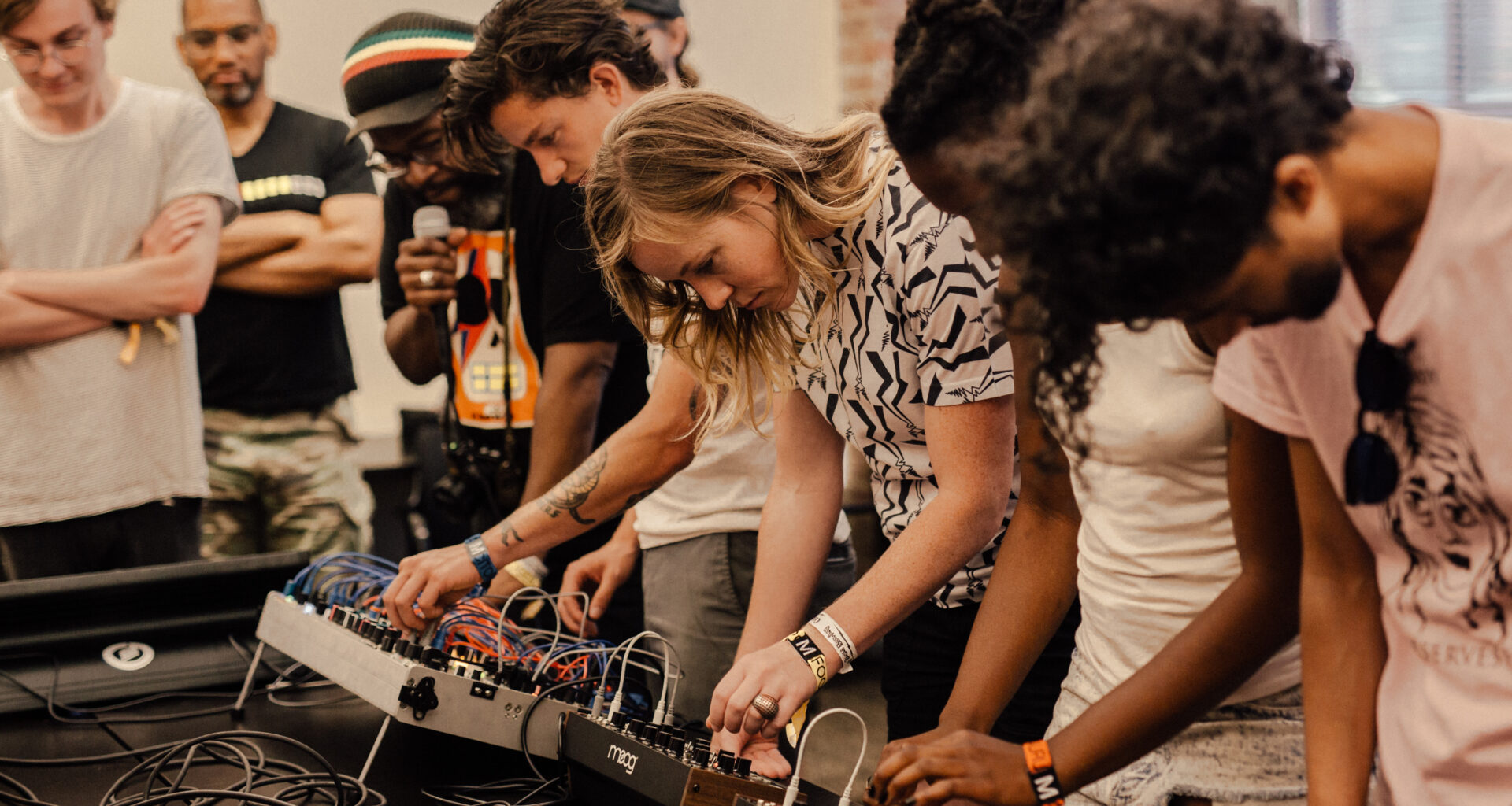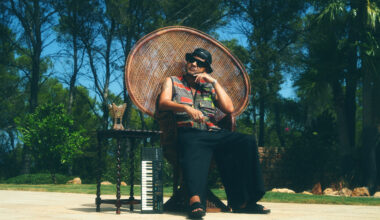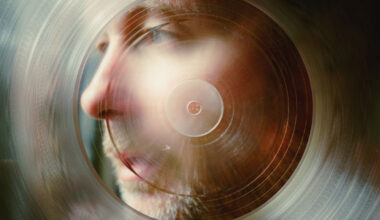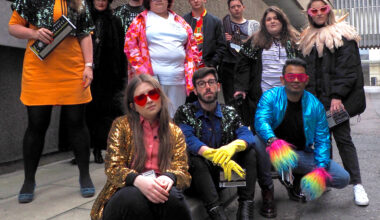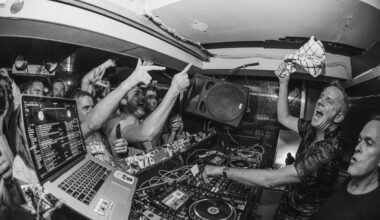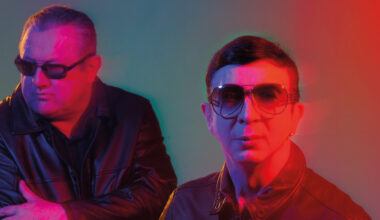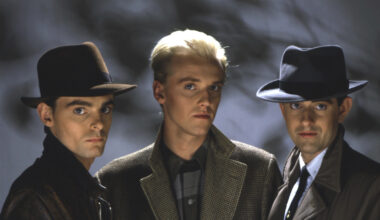Established in 2004, Moogfest brings together music, art and tech with the admirable aim of growing a global community of future sound explorers. We chart the rise and rise…
Keith Emerson is on the phone from Sussex.
“Hello Charles… would you happen to know any scantily clad women?”
Momentarily confused, promoter Charles Carlini asks the prog god what exactly he had in mind.
“I’m think of doing something crazy for Rick,” says Emerson. Rick Wakeman was on the cusp of turning 55, and as both had been booked in to play the inaugural instalment of Moogfest in May 2004, Keith wanted to mark his fellow synth wizard’s birthday with a special presentation. So just before the Yes keyboardist took to firing up one of his trademark Minimoog Model Ds, Emerson, Carlini, Bob Moog, and a young woman in a white bikini presented Wakeman with a large cake.
“Rick turned as red as a tomato with embarrassment,” says Emerson.
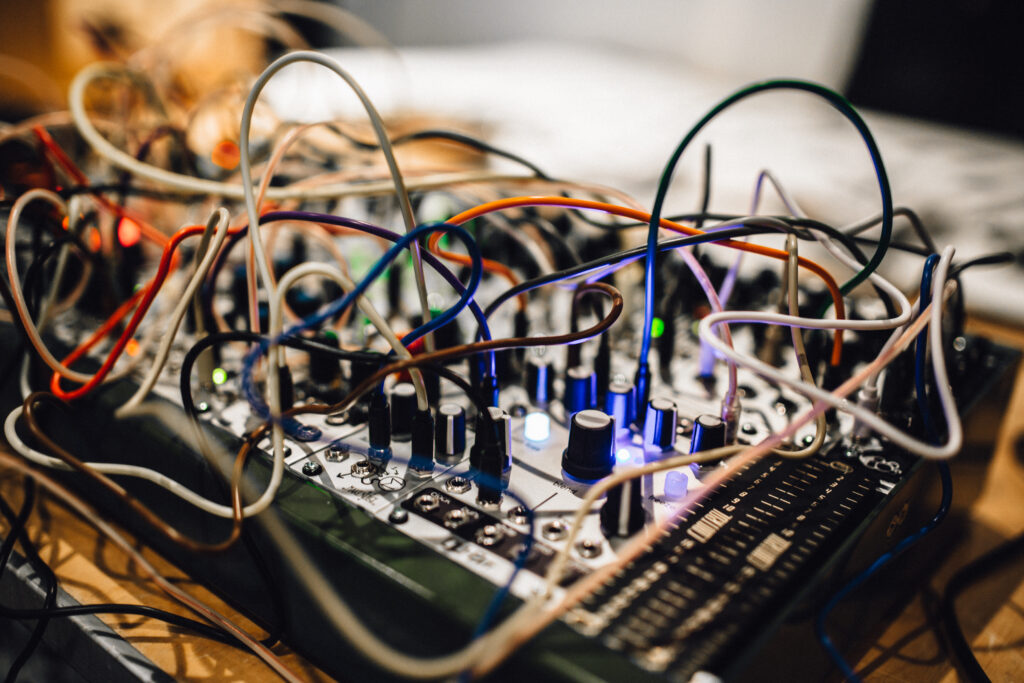
The evidence is there for all to see in Hans Fjellestad’s 2004 ‘Moog’ documentary. Wakeman managed to regain his composure and turn in a blistering performance for the sell-out crowd packed into BB King’s Blues Club & Grill in Manhatten’s Times Square. Moogfest was born.
Carlini had originally been approached by one of Moog’s American distributors about putting together an event to celebrate the venerable synth inventor’s 50th anniversary in the music business.
“I did Les Paul’s 90th birthday at Carnegie Hall,” Carlini remembers, “maybe they got the idea from that. I’d never done a festival, but I wanted to keep it intimate, where people could come and speak to Bob Moog, so I went about finding a venue to do it in.”
Carlini remembers Moog as a “genius” whose head always seemed to be in the engineering clouds, thinking about his instruments and how to best serve the musicians who played them.
“There was this tentative humility thing with Bob,” says filmmaker Hans Fjellestad. “There was a close knit sense of family vibe about that first event in New York. There was a lot of effort behind the scenes to get things right, like bringing Emerson’s Moog into the space. Bob was delighted and he didn’t feel like the spotlight was on him in an uncomfortable way. It was like he was hosting these up-and-comers and these legends that all made their mark in some way with his instruments. I think everything that was super important to him about his work and the history was represented on that night. He was pretty stoked.”
Emerson and funk maestro Bernie Worrell also put in grand turns that evening on the gear that had been so integral to their success.
The second gathering, at the same venue in May 2005, saw Worrell return, along with the likes of the Beastie Boys collaborator Money Mark, Don Preston of Zappa’s Mothers Of Invention along with Edgar Winter and one of Moog’s original evangelists, Gershon Kingsle, who wrote the early synth hit ‘Popcorn’.
Unfortunately, Bob Moog was too ill to attend and sadly passed away just a few months later. Despite the huge loss to the world of electronic music, Moogfest carried on at the New York venue bringing in other well-known musicians who had an attachment to the legacy Moog had built over the course of his career.
“When they asked me to do it,” said The Cure’s Roger O’Donnell in 2006. “I was like ‘On the same stage as Jan Hammer? I can’t do that!’.”
But O’Donnell did turn up and Carlini even managed to bring Thomas Dolby out of semi-retirement in 2007.
“I was after him for a while,” Carlini remembers “We had a great time, and he definitely delivered the goods.”
In 2008, the economic downturn combined with Moog Music President Mike Adams’ desire to broaden the reach of the brand shifted the dynamic of the festival. The Hammerstein Ballroom was selected as a new site for the show and jam band Umphrey’s McGee was the unlikely choice to top the bill. At that point Carlini felt like he had to step away.
“Mike wanted to see the festival go wider, and get a younger audience, which from a business perspective made a lot of sense because he wanted to make sure that the company was going to be around and that there would be younger Moog users. I wanted to just select those who had a history with the instrument and who defined it.”
The festival was postponed in 2009 (although a version of the proceedings took place in Rome that year), but in 2010 the event roared back into existence in Asheville, North Carolina, where the company is headquartered.
Over three days, at a number of locations throughout the city, Moogfest drew in huge names like Massive Attack, MGMT, and rapper Big Boi of Outkast fame. The vibe that year couldn’t have been better. Fans were also treated to tours of the Moog factory, panel discussions with synth legends like Herb Deutsch and because the event was held over Halloween, there was a true carnival spirit to the proceedings.
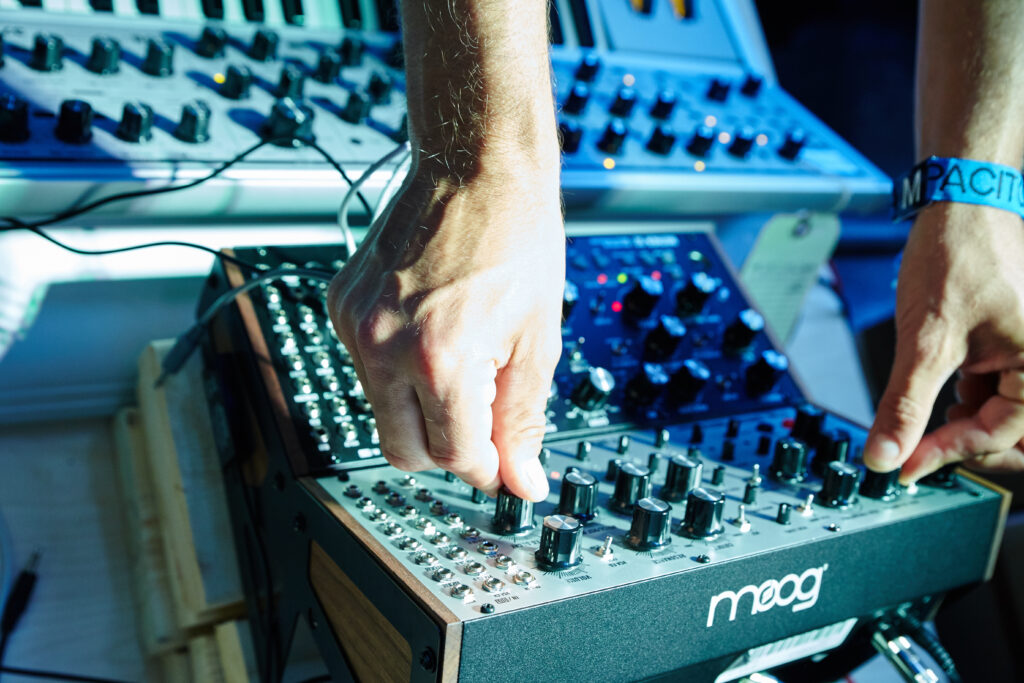
Devo were presented with the Moog Innovation Award, and although only Mark Mothersbaugh and Gerald Casale were present, the specky lead singer jumped on stage with indietronic outfit The Octopus Project to sing their classic ‘Girl U Want’.
If there was a zenith for the Asheville era of the festival, 2011 might have been that year. Featuring performances from Moby and Tangerine Dream, there was also a rammed lecture with Brian Eno, where the production maestro spoke at length via a collection of projected transparencies about topics such as Terry Riley’s ‘In C’ and his affection for pornography. Psychedelic troubadours The Flaming Lips played an outdoor set in the mountain mist that included an epic pass at Emerson, Lake & Palmer’s ‘Lucky Man’. Moogfest felt fully formed.
Problems, however, with the festival’s promoter set in, and 2012 was a scaled back affair. The following year Moog parted company with the organisation altogether and the name was put on hold. Redubbed as the Mountain Oasis Electronic Music Summit for 2013, there seemed to be a different sensibility altogether, and it wasn’t until Kraftwerk brought their mega 3D show to the resurrected Moogfest in 2014 (now held over five days) that the event felt back on track.
It was reported through local media that festival had bled out nearly $1.5 million, and that the loss was severe enough to bring things to a full stop the following year.
“Moogfest 2014 was a proof of concept so we could experiment with a new business, a unique format, and a new creative direction,” said Mike Adams, Moog Music Inc President & CEO. “Producing Moogfest every other year allows us to retain the high level of innovative programming as well as the originality and independence we established in 2014.”
That new direction involved Moogfest shifting three hours away from its home base to Durham, North Carolina – smack dab in the heart of the state’s technology research triangle. Reduced somewhat in size, the focus was retooled once again towards an emphasis on musical inspiration and imagination through electronics.
“I think Moogfest’s strength is to magnetise different people across different fields to focus on creativity,” says Kai Riedl who came onboard as Moogfest’s executive producer in 2016. “It’s really about the forward thinking quality of the music as opposed to the stature of the artist.”
Reidl helped to curate a reinvigorated cast for 2017 that included Manchester synth heroes 808 State as well as techno legend Derrick May. And the following year, REM’s Michael Stipe debuted a touching multimedia presentation during a line-up that also showcased electronic music legend, Suzanne Ciani.
Today, despite the bumps throughout its history, MoogFest is pressing on with the idea of centering on the creativity conversation. The in-depth panel discussions, the synth building workshops and a broad range of new and well-known artists are still on tap, with Depeche Mode’s Martin Gore set to attend this year as a speaker. And having recently brought on music industry veteran Gillian Ryan to head up the festival going forward, there are now rumblings of the event possibly going international, and doing Moogfest “in different continents.”
“Bob really wanted to bring together artists and friends in a way that was meaningful.” Ryan says. “But it has developed from the music into really creating a community around forward thinkers. That is really going to lead to the future of Moogfest. Keeping that sense of progressive thought, while we hope to reach more people, keeping it true to its core is essential.”
For more information, visit moogfest.com.
